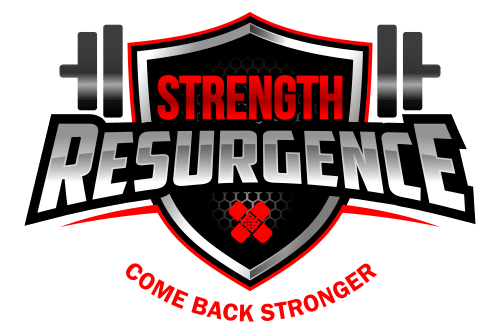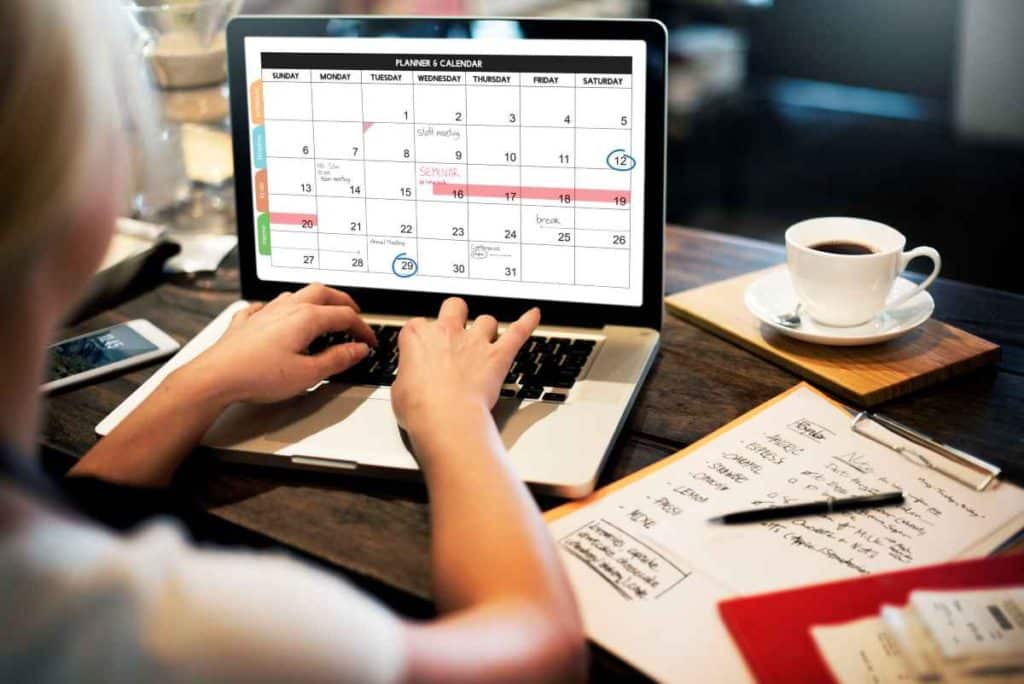When the time comes to begin the seemingly long and arduous process of studying for your written board exam, it can sometimes be challenging to know where to start.
Before even getting to the actual studying process, it’s well worth it to have an overall plan of how you plan to approach the study process itself. From there, you can get into efficient and effective rhythms that can serve to maximize all aspects of your studying while also serving to give you a bit more piece of mind knowing you’ve got a great system laid out in preparation for conquering the board exam.
The quick overview of this article:
There are dozens of great steps you can take to make the whole board exam study process much less painful and much more effective. The ten tips within this article are just a starting point, but each one is definitely worth considering, if nothing else. It might also be worth modifying any of the points within this article to suit your own individual needs.
Tip 1: Develop a written study plan & calendar with dedicated study times
Tip 2: Start your studying well in advance and think of this as a marathon rather than a sprint
Tip 3: Spend lots of time on “the big three” (Musculoskeletal, neurological & cardiopulmonary)
Tip 4: Use the free Scorebuilders Question of the Day App
Tip 5: Take practice exams at appropriately-spaced intervals
Tip 6: Use multiple practice exams to identify consistent strengths and consistent deficiencies
Tip 7: Develop a remediation list as you move through your studies
Tip 8: Focus on your weaknesses, not your strengths
Tip 9: Focus on high-yield topics as much as possible for the greatest ROI (return on investment)
Tip 10: Make the last practice exams that you take the PEAT exams
Each one of these tips is discussed in greater detail below, so be sure to keep on reading!
Tip 1: Develop a written study plan/calendar with dedicated study times
Since there’s three-years of material worth studying (if writing the NPTE) or two-years of school (if writing the PCE), you can’t really just decide to be haphazard with how you choose to study. Some students might be able to, but the vast majority of students will greatly benefit by creating a study plan or outline as to the actual process they will need to follow.
Start by figuring out the date of your actual board exam. From there, you can begin to work backwards in order to gain an idea of how much study time you might need. Some students feel they need approximately eight weeks while others feel like they need twelve or even sixteen. There’s no right or wrong with how much time you need – you just need to know what is going to be best for you.
You can figure out how many weeks you’ll need by structuring your study plan in a way that allows you to cover a certain number of topics each day and week, or maybe by how many hours you’d like to study each topic every week. This is where you begin to individualize your study plan, taking factors into account such as which days you can commit to studying, how many hours each day, and so on.
Additionally, you will need to consider what you feel your weakest/most challenging areas are when it comes to reviewing and learning material. The weaker you feel you knowledge is within an area, the more time you need to give yourself to master it (especially if it is in either of the categories of musculoskeletal, neurological or cardiopulmonary), as these three categories comprise a vast component of the NPTE exam and PCE exam (if writing the Canadian board exams).
Once you’ve got the big overview of what your study plan will look like and you’ve set your study calendar, be sure to commit to it! Block out those study hours you’ve laid out within your schedule to ensure that those hours don’t get filled with other activities or requirements that can rob you of that study time.
Tip 2: Start your studying well in advance and think of this as a marathon rather than a sprint
Dovetailing from tip number one into this tip, once you’ve got your study outline all figured out, you’ll likely see that in order to cover all of your study material to an appropriate extent that it’s going to take a decent amount of time to effectively go over and master all of that required content.
Studying an entire program’s worth of material takes time, which means you’d be wise to begin your study pursuits well in advance of the exam date, in accordance with your study outline/calendar that you’ve devised.
What this allows for is not only for much less stress incurred from feeling like you need to cram (trying to cram for a board exam is a recipe for stress and not advised), but also the ability to keep your study sessions a bit more casual/relaxed at the start.
Getting stressed right at the start and trying to get super aggressive with your studying right from day one might be hard to sustain over the long run. Even with as aggressive as I was with my board studies, I started out nice and very casual for the first two months just studying what I wanted to study.
After those two months, I began to ramp up the intensity and the extent of being regimented with my studies – essentially, I sprinted to the finish line, not at the starting line.
Tip 3: Spend lots of time on “the big three” (Musculoskeletal, Neurological & Cardiopulmonary)
While you need to study all the major topics covered throughout PT school (and thus on your board exam), the biggest three topics that are covered on the NPTE and the PCE are (in order from biggest to third biggest):
- Musculoskeletal
- Neurological
- Cardiopulmonary
While there are still plenty of topics covered on the exam, these are your biggest three, which makes sense since these three topics have the largest extent of material covered in PT school.
Therefore, be sure to plan and carve out a big chunk of time for studying these three topics. If you don’t have all three of these topics well covered and mastered by the time you write the exam, you may very well likely be in for a rough exam.
These three topics are pretty high-yield for studying (see tip nine), so really give your best efforts to study and learn the material for each one.
For further insight with the “big three” topics, make sure to pay special attention to tip number eight!
Tip 4: Use the Scorebuilders Question of the Day app
The Scorebuilders Question of the Day app is a free app provided by the Scorebuilders organization for helping students prepare for their boards.
It works by providing you with one NPTE board-styled multiple choice question per day, and provides answers and reasons for why one answer is correct and why the other aren’t. Additionally, it tracks your progress as the days go on and gives you breakdown/metric reports as to how you’re scoring in each category. You can also see the percentage of each answer selected by all other students who have answered the question of the day.
While it’s only one question per day, the fact that it’s a free app and that you can use it for as long as you need to, it’s well worth getting. You can easily go through sixty, eighty or more questions throughout your season of studying for the board exam.
Five: Take practice exams at appropriately-spaced intervals
I wrote an extensive post on Preparing for the NPTE: Why Practice Exams are Your Best Friend, and I’d encourage you to read it if you’re not sure how much practice exams can really help you out.
Assuming that you’re going to take at least two practice exams, it’s worth talking about. As I mentioned in the article that I linked just above, you have an amazing opportunity to learn about all sorts of strengths and weaknesses along with other performance parameters when you take practice exams from some of the bigger companies.
BUT, to really ensure that you’re making progress with your studying and retention of material, you need to give enough time between writing one practice exam to the next. What this allows for is enough time to pass for you to cover and study enough material that it will be evident on the next practice exam. In other words, enough time needs to pass that you’ve studied and covered enough material that your score should be noticeably better on the next exam.
Letting enough time pass from one exam to the next while studying in between each time frame gives you a clear understanding as to whether or not your studying is working/effective. If you wait a long time and see a good improvement from one test to the next, you know it’s working. If you don’t see an improvement, it’s an indication that you need to adjust your studying methodology ins some way or another.
Conversely, maybe you have the ideal study system in place but you don’t afford enough time from writing one practice exam to the next. If so, you might not see an improvement in your scores, and thus can’t tell if you’re making any progress with your studies or not.
So, how long should you wait between exams?
This is different for everyone and will largely depend on how many practice exams you plan on taking. The more you plan on taking, the closer you could write each exam to the next. Even then, however, it’s still worth waiting long enough for you to feel confident that you’ve learned/covered/reviewed a hefty amount of material.
I tended to space mine out (on average) every three or four weeks, and in my final week of reviewing I wrote both of my PEAT exams. By that point, I had been consistently making progress on every practice exam and had a decent amount of confidence, so I really just used the PEATs to affirm that I was absolutely ready to rock the NPTE.
Six: Use multiple practice exams to identify consistent strengths and consistent deficiencies
While it may sound pretty obvious to use your practice exams to help identify areas of strengths and weaknesses, many students fail to consider doing this across multiple practice exams by comparing categorical exam results from one practice test to another . Examining individual categories across multiple practice exams for your strengths and weaknesses helps to ensure consistency within each category.
Using only a single practice exam to determine how you scored within each category doesn’t tell you anything about your consistency. You don’t want to make the mistake of thinking you are very strong in one category when in fact it would have been the only exam in which you scored well for that category. Once you consistently score well in that category on multiple practice exams, you can then begin to rest assured that you have some level of mastery within that category.
And, it should go without saying that after each practice exam you take that you should spend a solid amount of time reviewing all the questions you missed while also analyzing the reason as to why you missed the question. Did you flat-out not know the material? Was it a simple test-taking error of not reading the question carefully? Knowing exactly why you missed every single question is an important action to take in order to know how to begin correcting those mistakes.
Seven: Develop a remediation list as you go along
One of the trickiest aspects of studying for the NPTE as you prepare to write it is not just that there’s a massive amount of material to review. Rather, it’s that there’s so much material that it becomes easy to not know what you still need to know.
It’s not uncommon to be reviewing a concept to only then realize or remember that there’s a bunch of material within that content that you still need to go over. Maybe it’s content that you once knew but need to brush up on, or perhaps the content itself doesn’t even sound familiar.
In either case, it would be a smart move to always have a list handy where you can write down the topics you still need to go over, come back to, brush up on, etc. It’s essentially a remediation list, and while it can get quite long as you go through your studies and seemingly feel like you have a million things you need to go over, it’s a very reassuring feeling to have a list right in front of you of all the topics or concepts you’ve collected along the way that you’ll need to go over again.
This builds confidence because you can look at that list and say “this list right here in front of me is what’s holding me back from having full confidence of passing my exam.”
And when you see those topics that you’ve written down on that list in front of you, you won’t ever find yourself stressing over something that you told yourself you need to study but can’t remember what it was since you didn’t write it down.
It may become a long and seemingly intimidating list, but you’ll start crossing things off one by one the more you study, and THAT is an empowering and great feeling.
Eight: Focus on your weaknesses, not your strengths
When it comes time to study the plethora of material that is the NPTE content, it’s never fun to study the concepts and topics that we naturally struggle with. Not only does it take a ton of extra time, but it also takes a ton of mental energy and even becomes a somewhat defeating feeling.
As a result, many students (and I caught myself being one of those individuals) tend to spend the greatest amount of time studying the topics that they’re most interested in or naturally excel at. While it is definitely still worth it to go over this material, you need to discipline yourself enough to hit the topics you don’t want to go over.
This is ESPECIALLY TRUE if any of your weaknesses are in the musculoskeletal, neurological or cardiopulmonary topics (i.e. “the big three”). The NPTE doesn’t care what your strengths and weaknesses are, and if you have any sort of weak area on the big three or other critical areas, the NPTE will expose them during the exam.
Nine: Focus on high-yield topics as much as possible for greatest ROI
One of the key concepts to keep in mind when it comes to getting the most out of your studying is to perpetually spend a decent amount of time focusing on what I call “high-yield” topics. These are topics where rote knowledge or strong conceptual understanding essentially allows you to answer a multitude of questions as a result – not because you memorized a million different things, but because knowing the concept or the key information allows you to work your way through the question in order to find the answer.
An example: knowing the brachial plexus and being able to quickly draw its schematic
A solid example of this would be knowing how to draw out the brachial plexus (think back to your gross anatomy days). By being able to quickly and effortlessly draw the schematic (which you can do on a blank piece of paper provided to you during the exam), you now have a visual to reference for any sort of question pertaining to innervation levels of shoulder and arm muscles that may be asked of you.
Rather than trying to remember the individual nerve root levels of all the individual muscles of the shoulder girdle and arm, being able to quickly draw a brachial plexus schematic essentially allows you to derive the answer for any of those muscles.
So, take some time to ask yourself what some high-yield concepts and topics there might be that could make your life easier when studying your material.
Ten: Make the last practice exam(s) you take the PEAT exams
Assuming you’re taking practice exams and that you’re taking them from at least two different companies, and if one of those companies happens to be the FSBT’s PEAT exams, then taking the PEAT exams last can be a good move.
As I mentioned in my other blog post Preparing for the NPTE: Why Practice Exams are Your Best Friend, if there were only ONE organization’s practice exams to write, the FSBPT’s PEAT exams would be my top choice. Read the above article as to why that’s my recommendation.
The PEAT is the practice exam that’s best left until the end of your studies. By saving these exams until the end, you’re giving yourself the most realistic, accurate practice exam possible next to the actual NPTE. Same computer screen display, exact same style questions, full 250 questions, etc. It will thus be the freshest exam in your mind, and this is the exam that is as close to the real deal as you can get.
Another reason as to why I recommend saving these exams as your last ones is that you should have done enough studying by this point to smoke both PEAT exams, which gives you supreme confidence – if you can crush a previous NPTE exam (one of the two PEAT exams) and another exam written by the FSBPT themselves, you will have supreme confidence that you’ll head into the Prometric testing center on test day and crush the real thing!
Closing remarks
While these aren’t the only tips worth mentioning when it comes to being effective and efficient with studying for the NPTE, they are all ones that can serve to build an effective foundation from which you can really begin to map out and attack your studies.
As you begin to go about your studies, make mental notes (or even physical notes) as to what seems to be working best for you in regards to studying. Learning to master the studying process for the NPTE (or CPE, if you’re taking the Canadian exam), is a learning process in and of itself in addition to studying the actual exam content.
This is why you need to give yourself plenty of time, not just for learning the raw content, but additionally so you can continually learn and refine what’s working best for you regarding optimizing and maximizing your studying efficiency and effectiveness.
This whole entire process will look different for every student, and what matters the most is learning to discover and implement what works best for YOU! It’s not silly or stupid if it works!
If you’ve just started this process, it will be a marathon, and will have unique challenges along the way, but stick with it, find out what works best for you and go slay this thing!
Grind hard. You got this.

Hi! I’m Jim Wittstrom, PT, DPT, CSCS, Pn1.
I am a physical therapist who is passionate about all things pertaining to strength & conditioning, human movement, injury prevention and rehabilitation. I created StrengthResurgence.com in order to help others become stronger and healthier. I also love helping aspiring students and therapists fulfill their dreams of becoming successful in school and within their clinical PT practice. Thanks for checking out my site!





